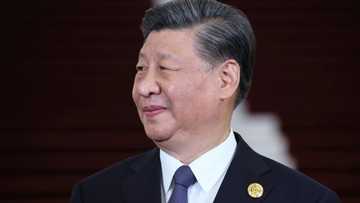ECB set to pause rate hikes as eurozone feels pinch

Source: AFP
European Central Bank policymakers are widely expected to leave interest rates unchanged when they meet in Athens on Thursday, as their previous policy moves seemed to be biting.
A decision to stand pat would end a streak of 10 straight hikes that has seen interest rates climb faster and further than ever.
Since July 2022, the ECB has cranked rates up by 450 basis points to tackle inflation driven in large part by surging energy prices in the wake of Russia's invasion of Ukraine.
The long tightening cycle has left the key deposit rate at four percent, its highest mark in the history of the central bank.
Once red-hot eurozone inflation has started to settle, falling to 4.3 percent in September from its double-digit peak towards the end of last year.
While the figure is still more than twice the ECB's target of two percent, rising borrowing costs have also shown signs of weighing on the currency bloc.
PAY ATTENTION: Сheck out news that is picked exactly for YOU ➡️ find the “Recommended for you” block on the home page and enjoy!
The Frankfurt-based institution's September economic projections revised down the forecast for growth in the eurozone, while the outbreak of the conflict in the Middle East has further clouded the horizon.
As such, the ECB was unlikely to "seriously" think about raising rates again at the moment "amid rising uncertainty over the global outlook", said Pictet analyst Frederik Ducrozet.
'Clear impact'
ECB policymakers were in "watch and see" mode Thursday, Ducrozet said, with new official forecasts only set to be published at the governing council's next meeting in December.
The most recently released economic data, however, painted a pessimistic picture of the eurozone that could encourage policymakers to hold off from more hikes.
Business activity in the bloc slumped in October, according to a closely watched Purchasing Managers' Index (PMI) survey put out by S&P Global, raising the possibility of a mild recession in the second half of 2023.
Eurozone banks have also been tightening their lending criteria for households and businesses, according to the ECB's own survey of financial institutions published this week.
"Weaker economic conditions and higher interest rates are having a clear impact", said ING economist Bert Colijn.
The borrowing squeeze was a sign that the ECB's monetary policy was feeding through "forcefully" to the economy, Colijn said.
A good reason not to hike further, he suggested, "especially given the fact that the ECB itself only expects the biggest impact of higher rates in early 2024".
The central bank could meanwhile consider winding down its balance sheet faster than currently planned to further apply the brakes on inflation.
Pause or plateau?
The ECB's 26-member governing council would no doubt discuss the possibility, but would likely "push back" against the idea, deferring a decision to a later date, said Ducrozet.
ECB President Christine Lagarde has acknowledged the "pain" felt by consumers as a result of aggressive rate hikes, but has cautioned against relenting too soon.
While inflation has come down, the ECB does not expect it to return to the target of two percent before 2025, according to its most recent projections.
Analysts will be listening closely to Lagarde's remarks after the rate decision, at 1245 GMT, to try to suss out the ECB's next moves.
Lagarde would "leave the option of further interest rate hikes on the table", if the ECB did not hike again, said Jack Allen-Reynolds of Capital Economics.
Holding rates at their current levels this week could be presented as a temporary "pause", said Allen-Reynolds, but there was every chance of the pause becoming a "plateau".
The question now, according to Pictet analyst Ducrozet, was "how long policy rates should be kept at current levels".
Source: AFP





